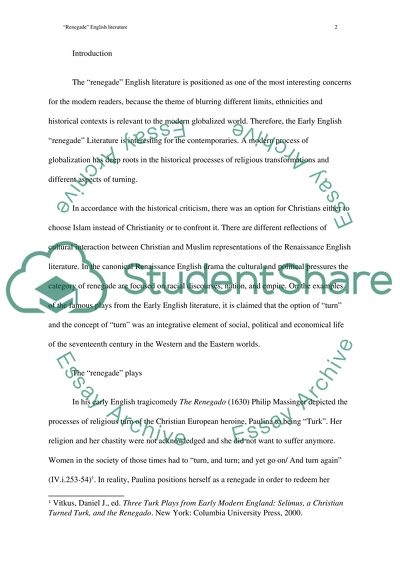Cite this document
(“Representations of Muslims and Christians in Early Modern English Essay”, n.d.)
Retrieved from https://studentshare.org/literature/1442786-representations-of-muslims-and-christians-in-early
Retrieved from https://studentshare.org/literature/1442786-representations-of-muslims-and-christians-in-early
(Representations of Muslims and Christians in Early Modern English Essay)
https://studentshare.org/literature/1442786-representations-of-muslims-and-christians-in-early.
https://studentshare.org/literature/1442786-representations-of-muslims-and-christians-in-early.
“Representations of Muslims and Christians in Early Modern English Essay”, n.d. https://studentshare.org/literature/1442786-representations-of-muslims-and-christians-in-early.


